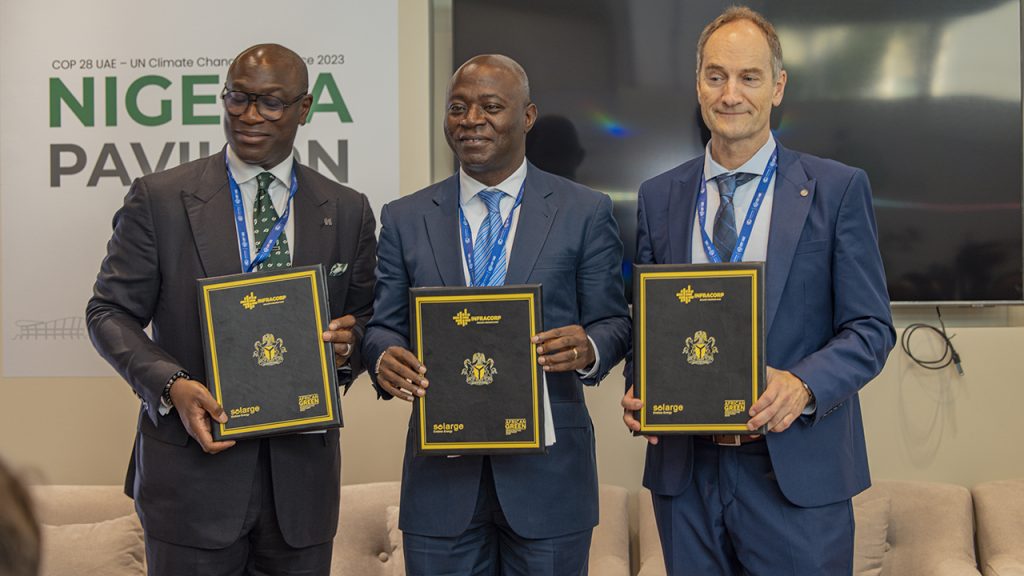At the ongoing COP 28 summit, Nigeria’s Infrastructure Corporation (InfraCorp) achieved a significant milestone by signing a Memorandum of Understanding (MoU) to launch a groundbreaking 1GW Solar PV manufacturing plant. This strategic move is poised to unlock the potential of various economic sectors, including agriculture, healthcare, and education, while contributing to Nigeria’s commitment to sustainable development and Net Zero emissions.
The MoU was signed by Dr. Lazarus Angbazo, the Chief Executive of InfraCorp, who represented the government-supported infrastructure investment entity. The partnership involves two key collaborators, Solarge BV of the Netherlands and the African Green Infrastructure Investment Bank.
The proposed solar PV manufacturing plant is anticipated to be one of the world’s first large-scale production facilities dedicated to lightweight solar panels with an ultra-low carbon footprint. This groundbreaking initiative aligns with global efforts to transition towards renewable energy sources and environmentally friendly technologies.
The project’s significance extends beyond its potential to meet energy demands; it is expected to play a crucial role in Nigeria’s commitment to sustainable local manufacturing and the development of critical infrastructure. By focusing on cutting-edge solar technology, the nation aims to make strides in reducing its carbon footprint and achieving Net Zero emissions.
InfraCorp, established and co-owned by the Central Bank of Nigeria (CBN), Africa Finance Corporation (AFC), and Nigeria Sovereign Investment Authority (NSIA), is a government-backed entity dedicated to driving infrastructure investments. Collaborating with Solarge BV and the African Green Infrastructure Investment Bank highlights the global cooperation necessary to address climate change and promote sustainable practices.
Dr. Lazarus Angbazo, expressing optimism about the venture, emphasized the potential positive impact on various economic sectors. The lightweight solar panels produced by the facility are expected to catalyze advancements in agriculture, healthcare, and education by providing a reliable and sustainable energy source.
